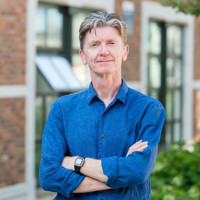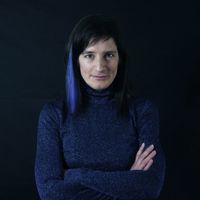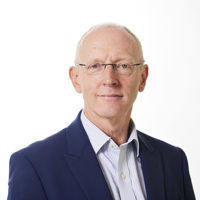Decarbonising our energy system is a key engineering challenge on the path to net zero. This will also impact publics and consumers in many ways, from the built infrastructure required to the ways consumers engage with their energy use. Energy decarbonisation is therefore a key area in which we need discussions that involve wider publics about the futures we need to build and how we get there.
We are delighted to welcome Professor Patrick Devine-Wright, Professor Laura Watts and Nick Winser CBE FREng as panellists for this Critical Conversation, chaired by Academy CEO Dr Hayaatun Sillem CBE. This event will explore the need for and role of public dialogue in informing the energy decarbonisation challenge in the UK.
Mini series: Engineering and a just transition to net zero
Engineers play a critical role in showing how we can achieve socially beneficial outcomes, however, these must be shaped by wider society. Identifying these outcomes and their challenges needs conversations between publics, policymakers, researchers, innovators, and those that build the infrastructures we rely on. Having discussions about the futures we need to build, in relation to net zero, involves actively involving wider publics in the engineering sphere, and having real dialogue about what that is and how we get there.
This Critical Conversations mini series will explore the role of public dialogue in informing engineering’s response to the net zero transition and what pathways should be taken. The three topics will be energy, transport and built environment.
Critical Conversations
Bringing together the thoughts of leading experts from across the Academy’s networks, our Critical Conversations explore issues of relevance to global professional engineering community and wider society. Fellows, awardees, and engineering partners gather to tackle topical issues of relevance to the global professional engineering community and wider society.
You will be able to pose your questions to the panel during the live event via the comments section on LinkedIn.

Dr Hayaatun Sillem CBE
Hayaatun is CEO of the Royal Academy of Engineering and Queen Elizabeth Prize for Engineering Foundation. She co-chairs with the Science Minister the government’s Business Innovation Forum and co-chaired with Sir Lewis Hamilton his Commission on improving Black representation in motorsport. She is a trustee of various charities, member of the government’s Levelling Up Advisory Council and Digital Skills Council and NXD at construction company Laing O’Rourke. She has been named as one of the ‘Inspiring 50’ women in tech in Europe and one of the most influential women in both UK engineering and UK tech. She has a Masters in Biochemistry (MBiochem) from Oxford and a PhD from Cancer Research UK/UCL. She is a Fellow of the IET, Honorary Professor at UCL and Honorary Fellow at The Queen’s College, Oxford. She has received honorary doctorates from UCL, Imperial College London, Newcastle, Brunel, Huddersfield and Southampton, as well as a Science Suffrage Award and the Engineering Professor’s Council President’s Medal. She was a finalist for the Veuve Clicquot Bold Woman Award and was made a CBE for services to International Engineering in 2019. Prior to her current roles, she was Deputy CEO at the Academy and served as Committee Specialist and later Specialist Adviser to the House of Commons Science & Technology Committee.

Professor Patrick Devine-Wright

Professor Laura Watts

